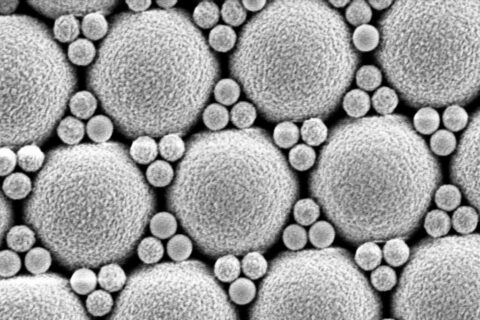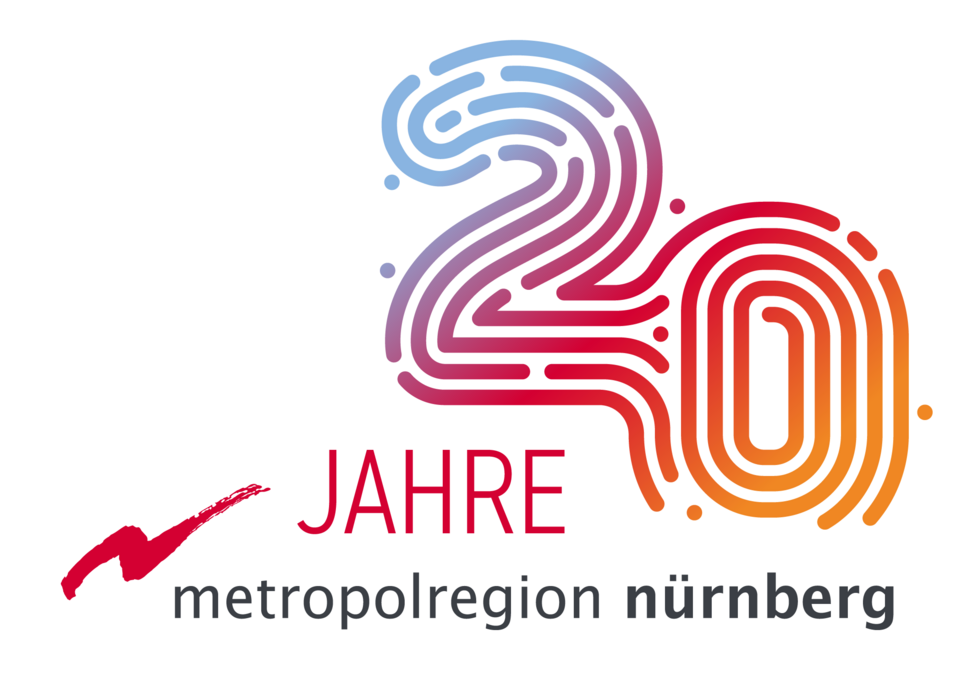Core Facility for Particle Research in Erlangen
The Erlangen Center for Functional Particle Systems (FPS) is being expanded into a core facility to give researchers from other scientific institutions access to its unique expertise and state-of-the-art equipment. With funding of almost one million euros from the German Research Foundation (DFG), the FPS will become the central hub for particle research. Functional particle systems, which serve as promising building blocks for innovative high-performance materials, are used in areas such as catalysis, energy conversion and life sciences.
Hub for particle research
The Erlangen Center for Functional Particle Systems (FPS) is being expanded into a core facility. In future, researchers from other scientific institutions will also be able to make greater use of the center's unique expertise and technical equipment. This will make the FPS, which is based at Friedrich-Alexander-Universität Erlangen-Nürnberg (FAU), a technology platform and hub for national and international particle research. The German Research Foundation (DFG) is funding the project with almost one million euros.
Why is particle research important?
Functional particle systems have biological, chemical and physical properties that make them promising building blocks for new high-performance materials. These include, for example, efficient catalysts for process technology, materials for energy conversion such as electrodes for fuel cells and printable solar cells as well as batteries for energy storage. However, functional particle systems also have a wide range of applications in the life sciences, for example in food technology, pharmaceuticals, nanomedicine and biotechnology. “Erlangen is an international heavyweight and beacon in the research of complex particle systems,” says Dr. Johannes Walter, Scientific Coordinator of the Erlangen Center for Functional Particle Systems (FPS). “With the establishment of the Core Facility, we will further expand this position into a technology platform and hub for international scientists to meet and network.”
Which areas will work together?
The future Core Facility, headed by Prof. Dr. Martin Hartmann, will combine three central areas of expertise in particle research in Erlangen: The synthesis of nanomaterials specifically for chemical and biochemical catalysis represented by Prof. Dr. Martin Hartmann, the analysis of porous nanostructures for separation and storage processes represented by Prof. Dr. Matthias Thommes and the comprehensive particle characterization and functionalization of particle surfaces represented by Prof. Dr. Wolfgang Peukert and Prof. Dr. Nicolas Vogel. These disciplines have been working together in the Collaborative Research Center (CRC) 1411 “Product Design of Disperse Systems” since 2020.
How do other universities benefit from this?
The funding of core facilities is aimed in particular at facilitating access to research infrastructures and the wider use of resources. The equipment centers not only provide external scientists with advice, they also make their highly complex technology available for research work. At the FPS, these are methods for the production and characterization of functional surfaces, particle systems and porous materials. These include fluorescence spectroscopes for characterizing chemical substances, ultracentrifuges for investigating particle behaviour in liquids, nuclear magnetic resonance spectroscopes for characterizing particle surfaces and devices for comprehensive pore structure analysis and the characterization of surface properties such as topography, chemical composition or wetting. This highly specialized infrastructure is expensive, complex to operate, requires special expertise and is therefore not available at every research location.
Who else can use the facility?
“Our utilization concept envisages three categories,” explains Johannes Walter. “Firstly, comprehensive cooperation work with other institutions, secondly, contract measurements for users from industry and research and thirdly, method development and application transfer for external users.” Future cooperation partners include not only scientific institutions, but also interested parties from industry. Walter: “The DFG funding is primarily start-up funding, which will enable the establishment of three postdoc positions, for example. But funds are also provided for public relations work.” This funding will enable the high level of expertise in the characterization of particles, pores and surfaces to be sustainably strengthened and research projects to be initiated. Open doors for school projects, information events and vacation programs help to spread the enthusiasm of the researchers to the wider public.

Structure formation on the nanoscale is made possible by self-organization. Small polystyrene spheres with two different sizes form an ordered packing on the smallest length scale. © Nicolas Vogel



